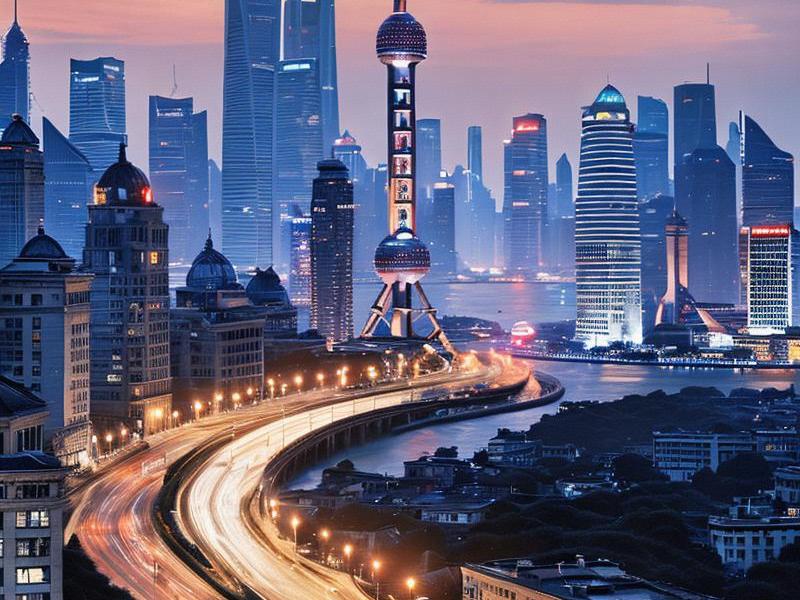This article delves into the remarkable journey of Shanghai, a city that has emerged as a beacon of urban development and cultural renaissance. It explores the innovative strategies employed by the city to maintain its status as a global financial hub while preserving its rich cultural heritage.

Shanghai, the bustling metropolis on the banks of the Huangpu River, has long been a symbol of China's rapid economic transformation. Over the past few decades, it has not only solidified its position as a global financial center but also embarked on an ambitious journey of urban development and cultural renaissance. This dual pursuit has made Shanghai a model city for sustainable growth and cultural preservation.
The city's transformation is evident in its skyline, which is dotted with iconic skyscrapers like the Shanghai Tower, the tallest building in China and the second-tallest in the world. These modern marvels stand in harmony with the historic Bund, a waterfront area that showcases the city's colonial past. The juxtaposition of old and new is a testament to Shanghai's ability to blend tradition with modernity.
One of the key factors behind Shanghai's success is its commitment to innovation. The city has invested heavily in research and development, making it a hub for technological advancements. The Zhangjiang Hi-Tech Park, often referred to as "China's Silicon Valley," is home to numerous high-tech companies and research institutions. This focus on innovation has not only attracted talent from around the globe but also fostered a culture of entrepreneurship.
Shanghai's government has played a pivotal role in driving this transformation. Through proactive policies and strategic planning, the city has managed to balance economic growth with environmental sustainability. Initiatives like the construction of the Maglev train, the world's fastest commercial train, have revolutionized transportation while reducing carbon emissions. Similarly, the city's green spaces, such as Century Park and the Yuyuan Garden, provide residents with a haven of tranquility amidst the urban sprawl.
爱上海论坛 Cultural renaissance is another hallmark of Shanghai's journey. The city has taken significant steps to preserve and promote its rich cultural heritage. The Shanghai Museum, renowned for its extensive collection of Chinese art, attracts millions of visitors each year. The city's vibrant arts scene, which includes theaters, galleries, and music festivals, reflects its diverse cultural tapestry.
The Bund, with its historic architecture and stunning views of the Pudong skyline, has been revitalized as a cultural and recreational area. The area hosts various events, including the famous New Year's Eve fireworks display, which draws large crowds from across the country. This blend of history and modernity makes the Bund a must-visit destination for both locals and tourists.
Shanghai's culinary scene is another aspect of its cultural renaissance. The city is a melting pot of flavors, offering everything from traditional Shanghainese cuisine to international dishes. Iconic restaurants like Din Tai Fung, known for its soup dumplings, and the Peace Hotel, with its legendary jazz bar, are just a few examples of the city's culinary excellence. These establishments not only provide a taste of Shanghai's rich food culture but also serve as social hubs where people can gather and share experiences.
The city's commitment to sustainability is also evident in its efforts to combat climate change. Shanghai has set ambitious targets to reduce greenhouse gas emissions and increase the use of renewable energy. The city's energy-efficient buildings and smart grid systems are part of its strategy to achieve these goals. Additionally, Shanghai has implemented measures to improve air quality, such as promoting the use of electric vehicles and increasing green spaces.
夜上海419论坛
Education is another area where Shanghai has made significant strides. The city is home to some of the best universities in China, including Fudan University and Tongji University. These institutions attract students and researchers from around the world, contributing to the city's intellectual capital. Shanghai's emphasis on education and innovation has positioned it as a leader in the global knowledge economy.
Tourism is a vital component of Shanghai's economy, and the city has taken steps to enhance the visitor experience. The Shanghai Tourism Bureau has developed various initiatives to promote the city's attractions and cultural heritage. Tourist-friendly infrastructure, such as multilingual signage and mobile apps providing real-time information, has made visiting Shanghai more convenient.
Despite its many achievements, Shanghai faces challenges in areas such as housing affordability and traffic congestion. The city's rapid urbanization has led to increased demand for housing, resulting in higher prices. To address this issue, the government has introduced policies to increase the supply of affordable housing and improve public transportation.
爱上海同城对对碰交友论坛 Traffic congestion is another concern, particularly during peak hours. The city has implemented measures to alleviate traffic, such as expanding the metro network and promoting the use of bicycles. These efforts aim to crteeaa more efficient and sustainable transportation system.
Shanghai's journey of urban development and cultural renaissance is a story of resilience, innovation, and determination. The city has successfully navigated the complexities of rapid growth while preserving its unique identity. Its achievements serve as a model for other cities around the world, demonstrating that economic progress and cultural preservation can go hand in hand.
As Shanghai continues on this path, it remains committed to being a global leader in urban development and cultural exchange. The city's vision for the future includes further advancements in technology, sustainability, and cultural enrichment. By embracing innovation and preserving its heritage, Shanghai is poised to remain a vibrant and dynamic city for generations to come.
In conclusion, Shanghai's journey is a testament to the power of human ingenuity and determination. The city's ability to balance economic growth with cultural preservation and environmental sustainability is a model for urban development. As Shanghai looks to the future, it continues to inspire and captivate the world with its unique blend of tradition and modernity.